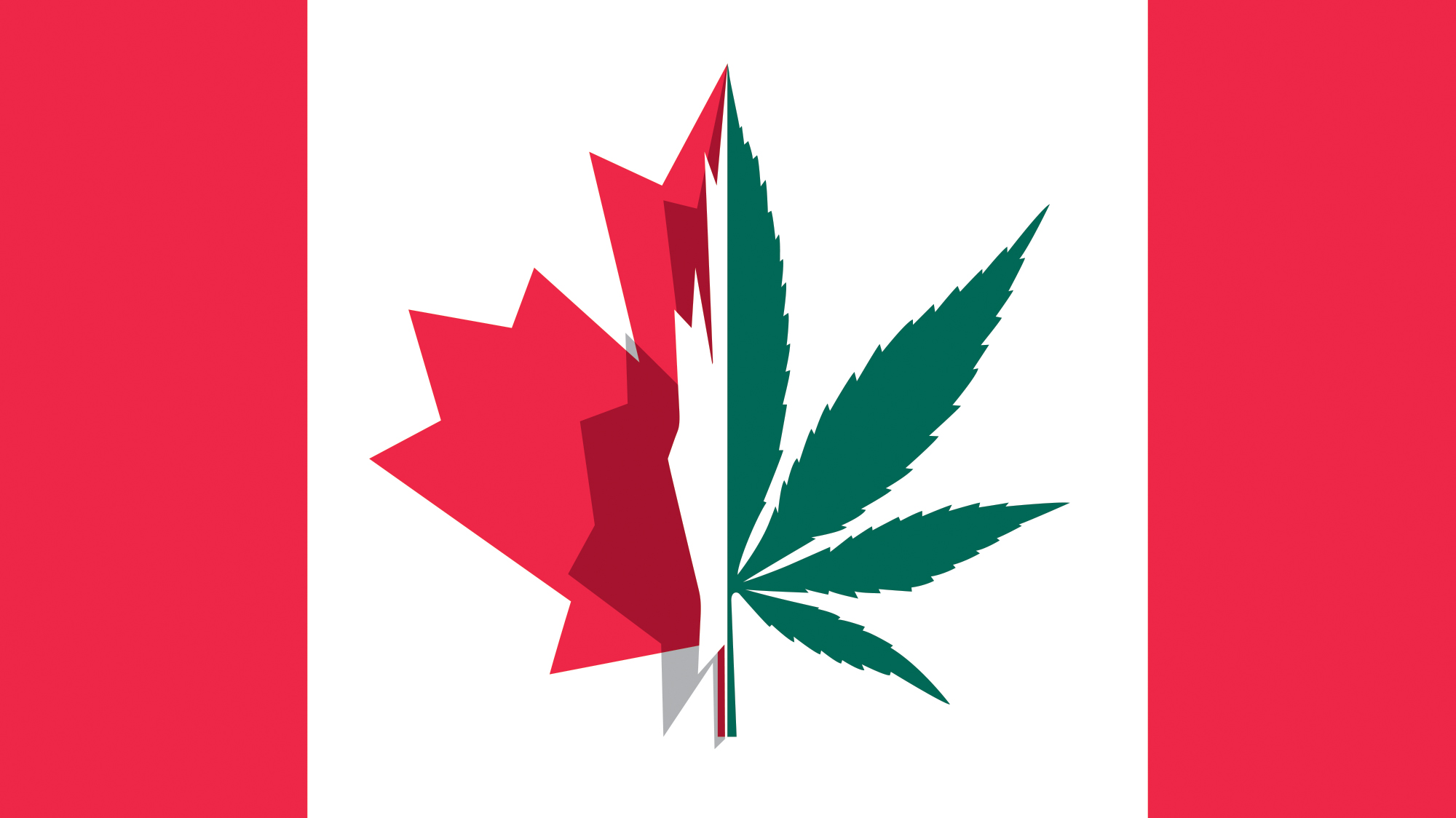In the dark of a frigid February morning on the outskirts of Ottawa, Canada, a convoy of trucks pulled up to the loading docks of a refurbished Hershey’s factory that’s now the headquarters of the world’s largest marijuana company—Canopy Growth Corp. Horticulturists in Tyvek suits began loading the vehicles with unmarked boxes, each the size of four refrigerators. The boxes were filled with 100,000 baby cannabis plants that had been packaged for transport to a 1.3 million-square-foot former bell pepper greenhouse in British Columbia, just miles from the US border. By the time the plants were flown cross-country and transplanted into their new home, it was dark again—and the greenhouse had temporarily claimed the coveted title of world’s largest grow op.
The plants could yield as much as 88,000 pounds of bud when they mature this June. That’s only a fraction of what is predicted to be the biggest legal marijuana harvest in history—as much as 1.1 million pounds—just in time for Canada to corner the international weed market.
It has been three years since Prime Minister Justin Trudeau was elected on a platform that included lifting restrictions on recreational cannabis use. Canada is now doing what only Uruguay has done before: legalize recreational marijuana on a national scale. The scope of the pending rollout is unprecedented, even compared with what’s transpired in California, which has 4 million more inhabitants than Canada. It will create a nationwide system in which weed is treated less like a narcotic and more like booze, taxed and sold mostly in state-run stores where any adult can buy. And it’s happening while legal growers in the United States navigate a patchwork of state laws and watch the hands-off approach to marijuana enforcement of the Obama years give way to Attorney General Jeff Sessions’ decidedly retrograde anti-weed stance.
In some respects, the situation is a throwback to Prohibition days: Liquor was banned in the United States but legal in Canada in the 1920s, and Seagram Co. of Montreal took advantage of its sidelined American competitors to become the world’s largest distiller. Now, the chance to become the Seagram of weed has led a who’s who of Canadian entrepreneurs—from pharmaceutical execs to tech leaders—to go public, raising billions of dollars to build and supply massive grow ops across the country.
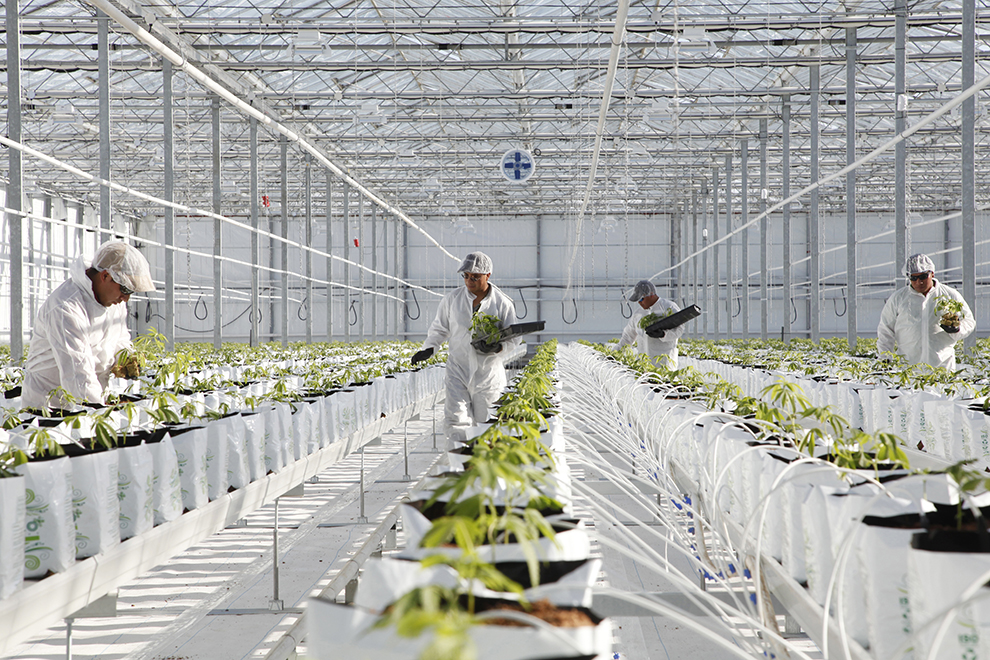
Workers from Guatemala check on recently planted clones in Canopy Growth Corp.’s massive British Columbia facility.
Jennifer Osborne/Redux
While Canopy operates out of its converted chocolate factory, Canada’s second-largest producer—Aurora Cannabis, valued at $3.5 billion—has built an 800,000-square-foot greenhouse inside the perimeter fence of the Edmonton International Airport. The facility, known as Aurora Sky, was touted as the largest grow op on the planet when it was announced last year. But Canopy has already caught up to Aurora—its newest, 1.7 million-square-foot greenhouse was loaded with pot in April and is expected to produce another bumper crop by the end of August.
Canopy has perhaps the most recognized brand in the Canadian legalized market: Tweed marijuana. Under Tweed, Canopy has taken strains with street names like Blue Cheese, Candyland, and Ken’s Kush and tried to rebrand them with WASPy names like Blue Balmoral, Houndstooth, and Herringbone. The company also has an arrangement with Snoop Dogg to package some of its most fragrant strains under his Leafs By Snoop brand. It’s all part of a plan to maintain market dominance over competitors like Aurora and Aphria, another publicly traded grower that is expanding its own supersize greenhouse less than an hour’s drive from the Detroit River, where boats and sleds filled with booze once outmaneuvered US officials to deliver contraband Canadian whisky to American bootleggers.
The new pot market will be grafted onto Canada’s liquor distribution systems, with cannabis products sold in stores run by the same crown corporations that control the flow of alcohol. Those stores will be initially limited to dried and fresh flower and oils. Edibles and drinkables are expected to follow. While consumers might still think of pot as something to smoke, vape, or eat, Canada’s weed companies see their cash crop as the great disruptor of both the pharmaceutical and liquor sectors, even readying to push their nonpsychoactive, more relaxing strains onto pharmacy shelves as less harmful and less addictive alternatives to opioid-based painkillers.
Of course, Canadian marijuana will still be prohibited in the United States. “Regardless of the sentiment in certain states, it’s still federally illegal, so we can’t go in,” says Canopy President Mark Zekulin, a 38-year-old Cambridge-educated lawyer and former political adviser whose past entrepreneurial endeavors include inventing color-changing Bluetooth Christmas lights and a plan to disrupt the parking-meter business. “Instead, we’re exploring all these global opportunities where there’s no major US competitor.” Canopy has partnerships in Jamaica, Australia, Spain, Denmark, and Brazil. An armored truckload of vacuum-packed bags of cannabis departs the old chocolate factory every month, headed for German pharmacies.
Canopy’s plans to bottle pot may have the biggest impact of all. Its lab technicians have been laboring over an industrial cannabis-oil extraction machine the size of a 1960s mainframe to create a new concoction that might kill the buzz of plain old Canadian whisky. (Alcohol sales have dropped 15 percent in US counties that legalized medical marijuana.) “We don’t just want to sell a cannabis beer or a cannabis wine,” Zekulin explains. “For us, the job is to create something completely different.” Last year, Constellation Brands, the American parent company of Corona and Robert Mondavi wines, bought a 10 percent share of Canopy for $191 million. It wouldn’t be the first time thirsty American businesses have looked north to do an end run around prohibition.
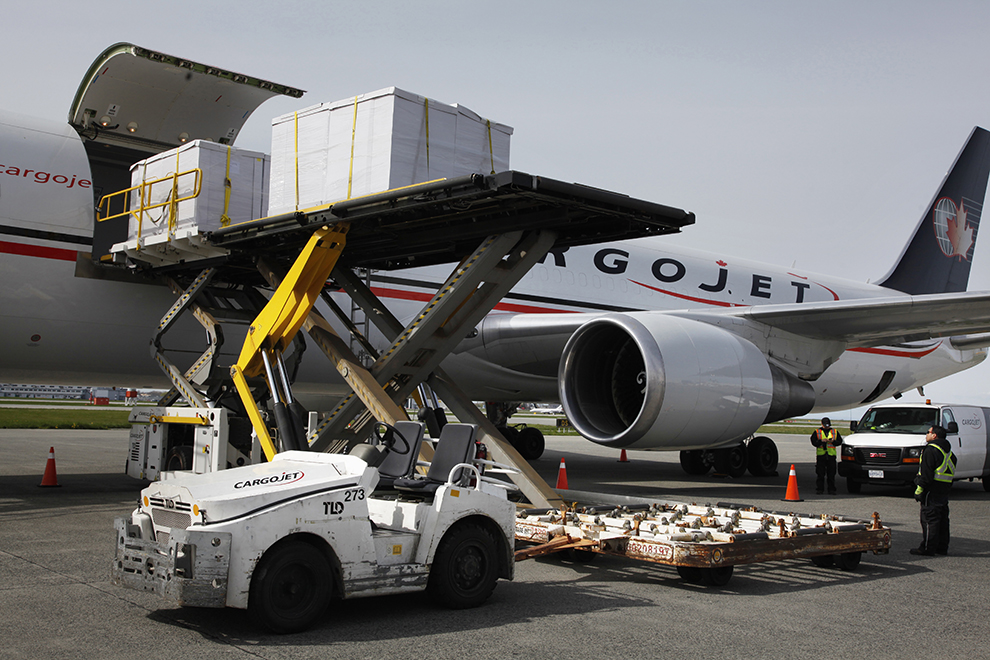
Seedlings coming off the plane in large shipping containers.
Jennifer Osborne/Redux

Employees from CargoJet offload a seedlings cargo container.
Jennifer Osborne/Redux
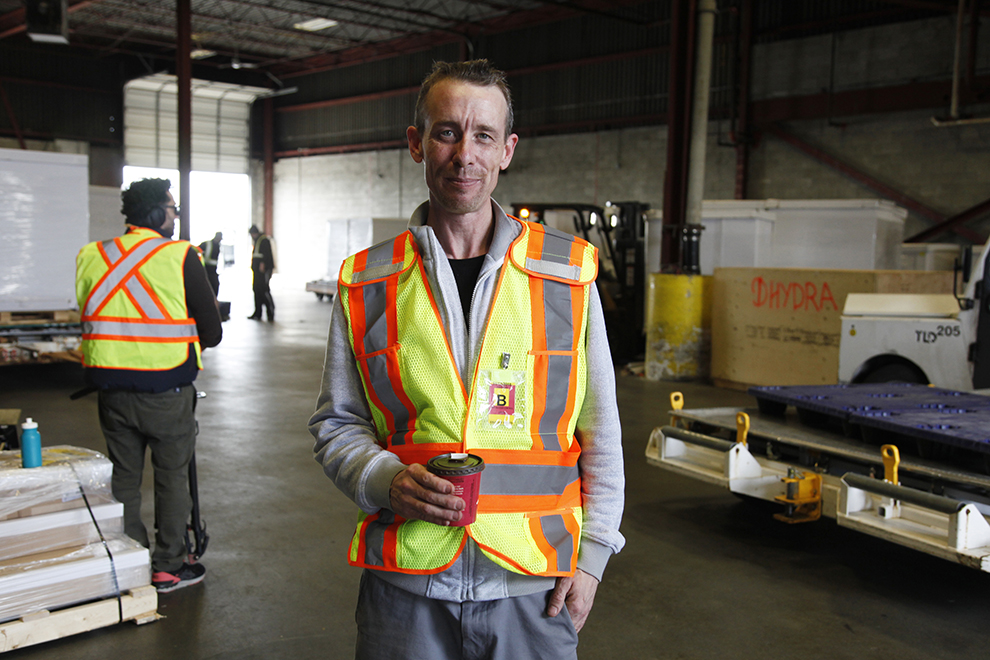
Canopy Growth Corp. Ontario warehouse supervisor Troy Dobson
Jennifer Osborne/Redux
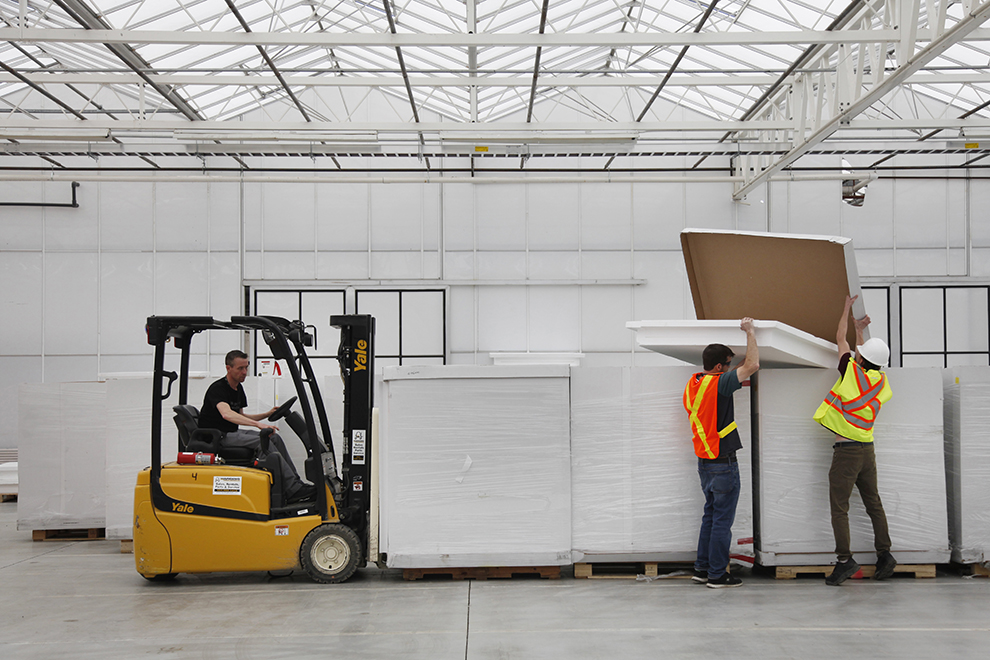
Canopy workers open up the new cargo containers that just arrived, full of seedlings.
Jennifer Osborne/Redux
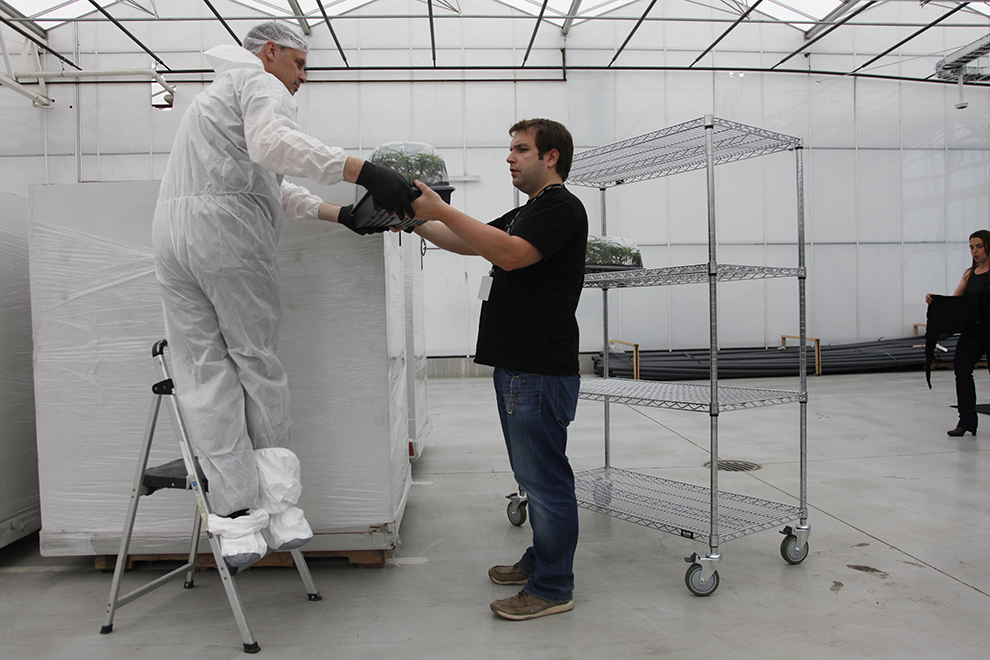
Victor Krahn (the owner of this facility) lifts seedlings out of a shipping container.
Jennifer Osborne/Redux

Cannabis seedlings
Jennifer Osborne/Redux
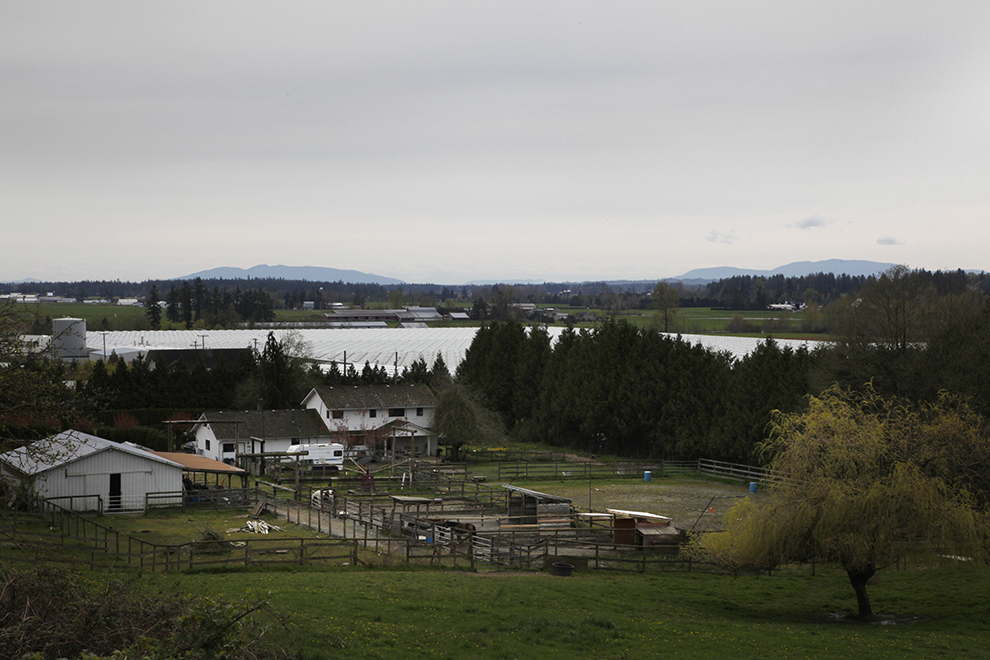
A view of the Aldergrove facility
Jennifer Osborne/Redux
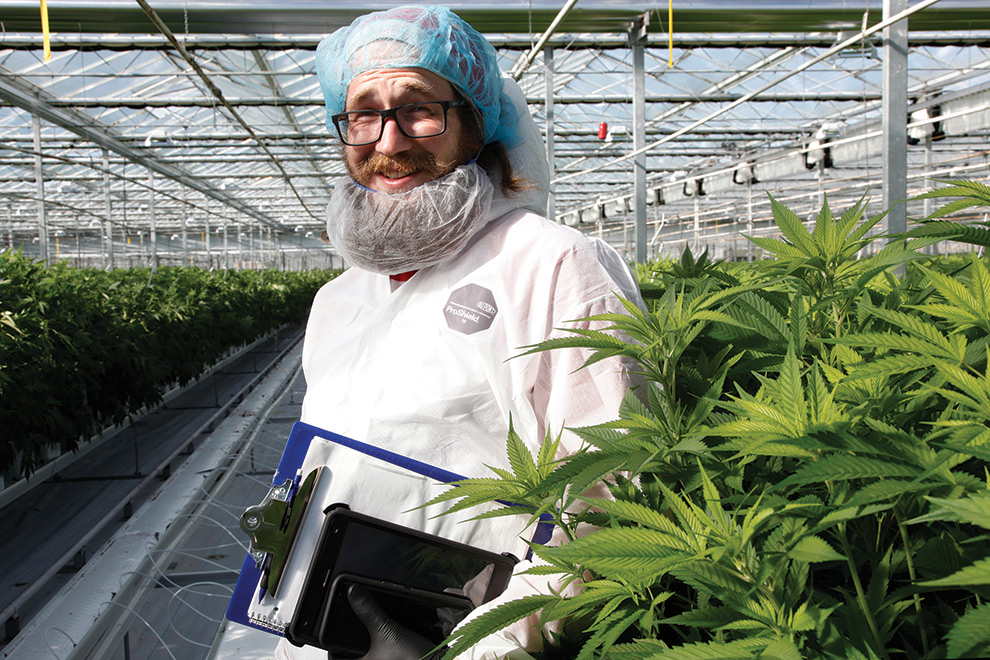
Assistant grower Josh Von Hardenberg
Jennifer Osborne/Redux
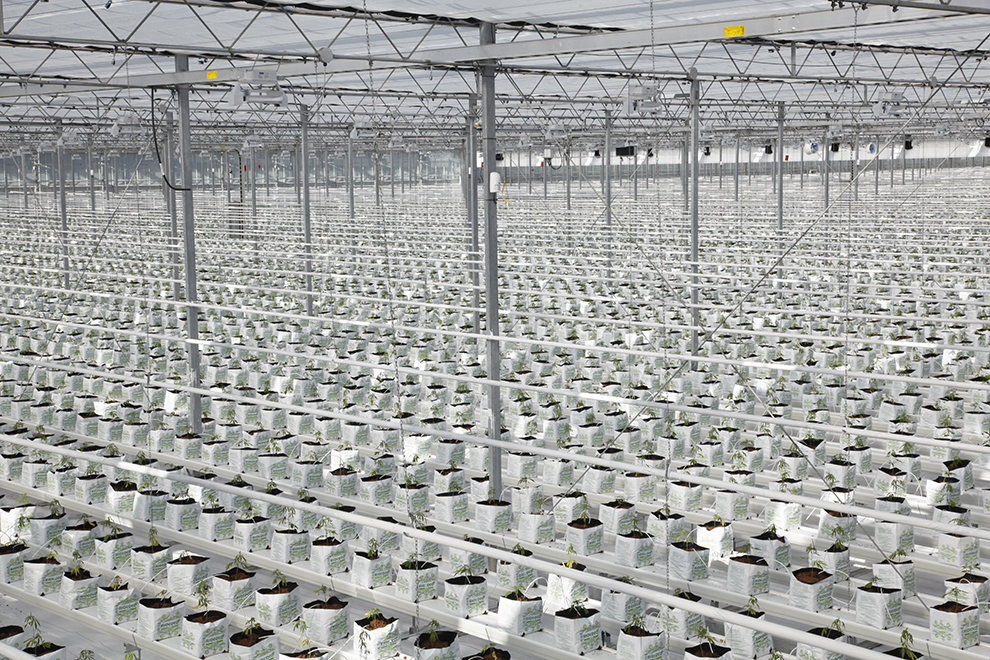
Recently planted young clones in the massive Aldergrove greenhouse
Jennifer Osborne/Redux
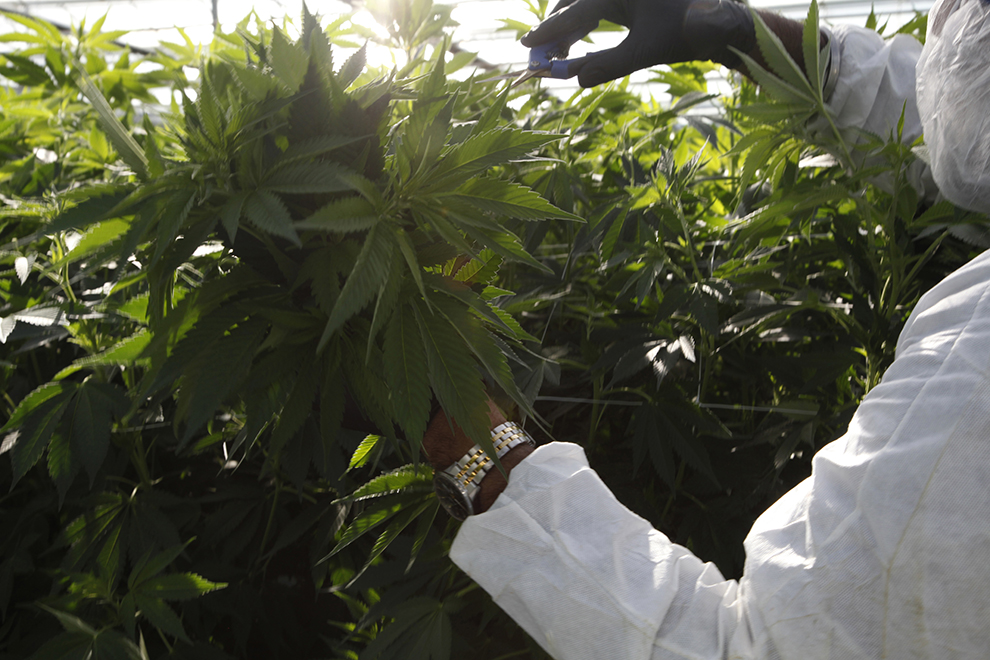
Workers prune five-week-old plants in Aldergrove.
Jennifer Osborne/Redux
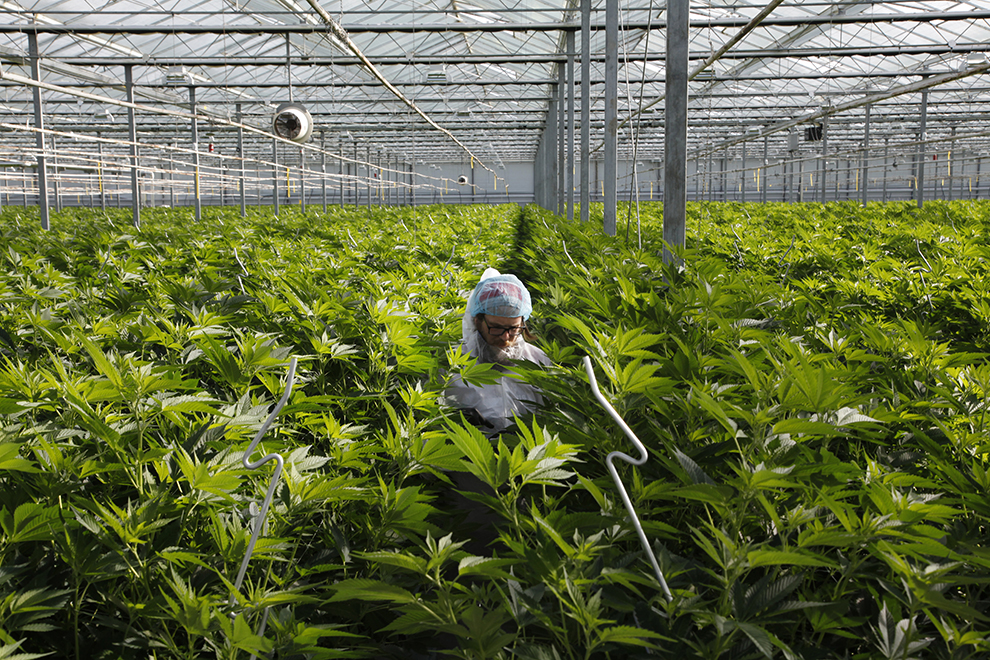
Assistant grower Josh Von Hardenberg in the Aldergrove facility
Jennifer Osborne/Redux
